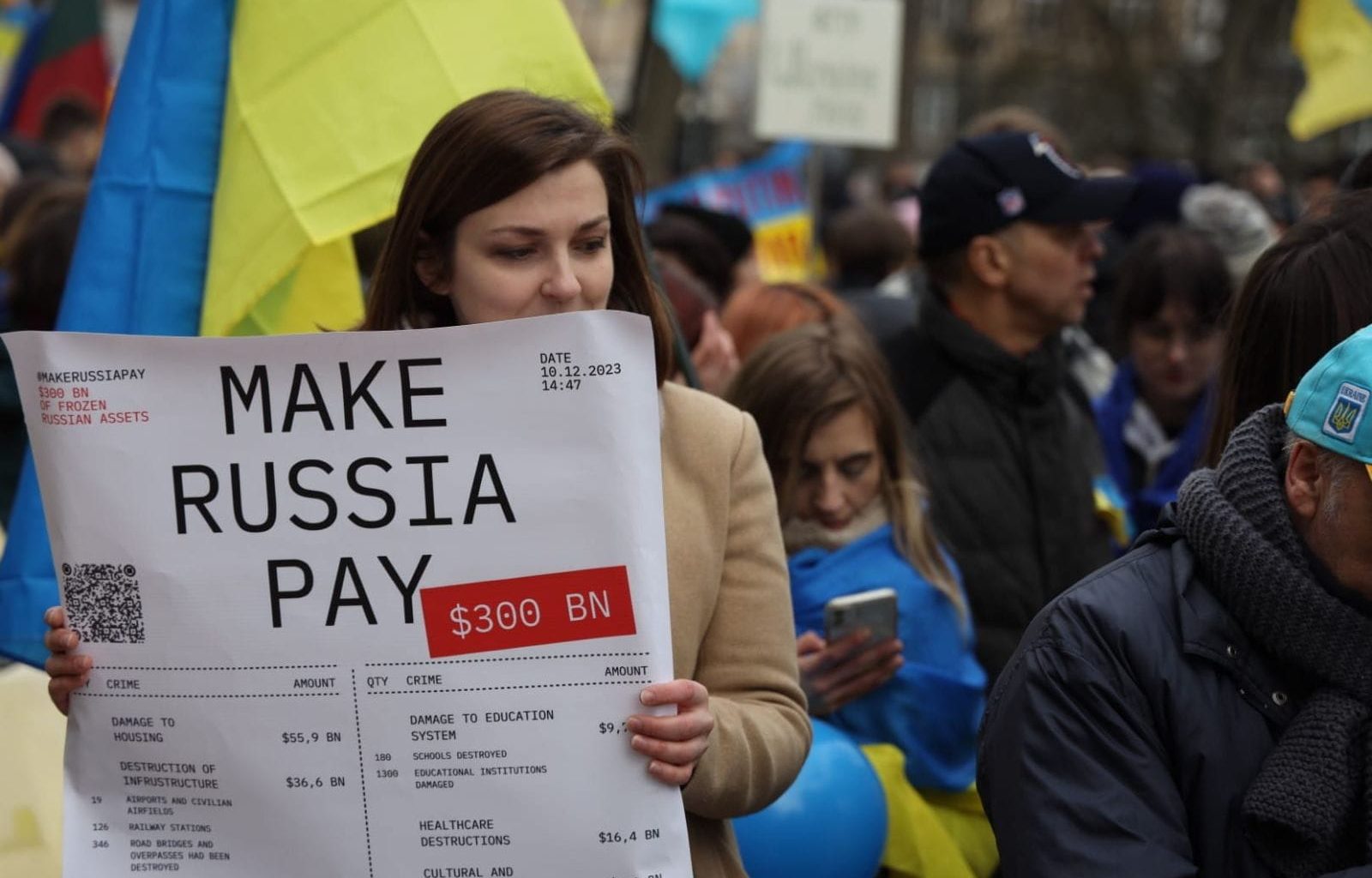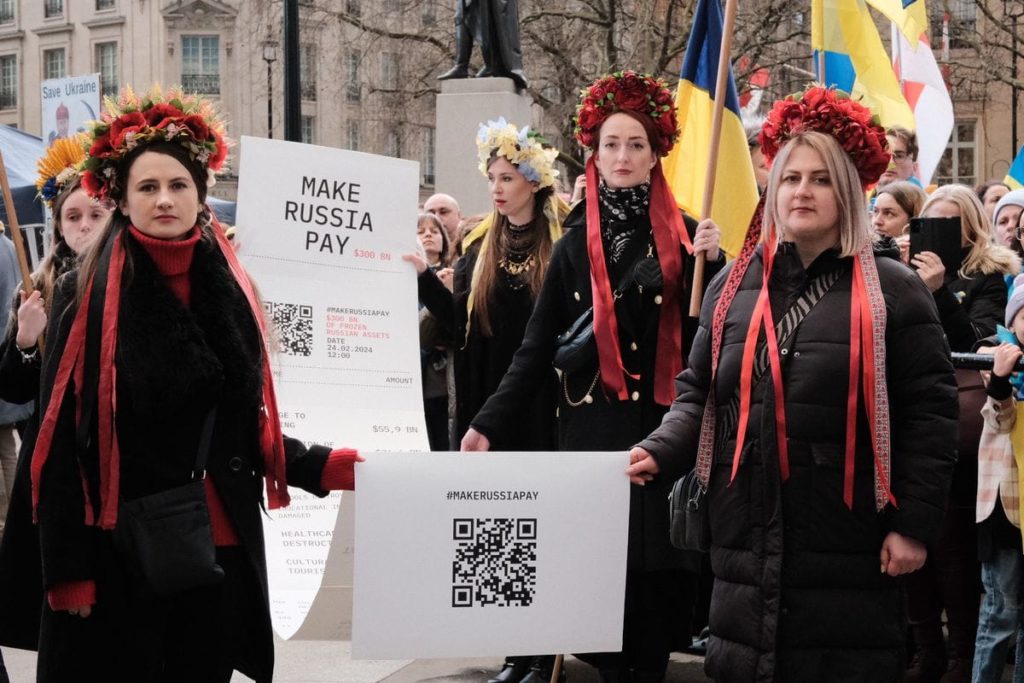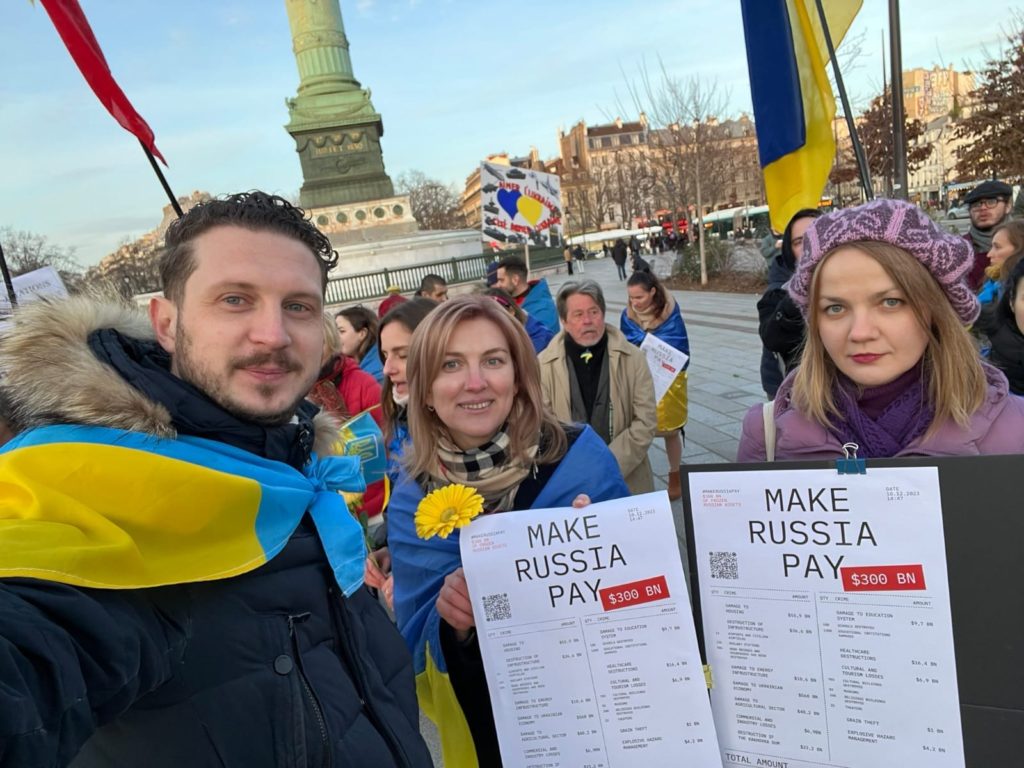On 20 April 2024, Ukrainians watched with bated breath as the United States House of Representatives voted to approve a bill that would provide approximately $61 billion in aid to Ukraine.
This vote came after more than six months of delays, and the entire nation of Ukraine waited with anticipation. On 23 April 2024, the Senate also passed the bill, leaving the final step for President Biden to sign it into law.
US passes long-awaited Ukraine aid package. Here is what it contains
In addition to the much-needed aid for Ukraine’s military, Congress also passed legislation that allows for the confiscation of Russian central bank assets, with the proceeds going to support Ukraine.
- This law establishes a legal mechanism for asset confiscation as a countermeasure against Russia’s actions.
- It grants the President of the United States the authority to initiate the confiscation procedure and subsequently transfer the seized funds to designated accounts: the Compensation Fund and the Ukraine Support Fund.
- The President can coordinate the process of transferring the confiscated Russian assets to Ukraine with the Group of Seven (G7) countries, the European Union (EU), and other partners.
- Furthermore, the law provides for the expansion of anti-Russian sanctions.
Regarding the potential amounts of Russian assets that could be confiscated, estimates suggest there are not many Russian sovereign assets located in the United States, with figures ranging from $5 billion to $8 billion.
In numerous conversations with US congressmen and government officials over the past few months, the emphasis has been placed on the fact that the decision to confiscate assets cannot replace but rather complement a substantial aid package.
Therefore, this US decision is significant primarily as a qualitative new step towards confiscating the full amount of approximately $300 billion.
Ukraine celebrates the unblocking of the US aid package, but the lengthy delay has come at a substantial cost on the frontlines. And, there is a possibility that this aid package may be the last major one for an indefinite period.
Europe should take the lead in supporting Ukraine and develop its own capabilities, particularly in the defense industry, to protect the continent’s security, which will be beneficial under any potential scenario regarding the political situation in the United States.
Asset confiscation may be one alternative plan to provide Ukraine with systemic support.
Active negotiations are ongoing within the G7 on how to raise this money for Ukraine. The US government changed its stance on this issue in December 2023, after which it joined the UK and Canada in persuading its partners to carry out full confiscation.
Now, the Congressional decision paves the way for the US to lead its partners not only with political statements but also by setting an example and taking concrete actions.
Contrary to China, Saudi Arabia, UAE's bluff, there is no real alternative to the dollar or euro
In fact, Europe wants to continue profiting from Russia's "friends": recent media reports indicate that China, Saudi Arabia, and the United Arab Emirates have joined in pressuring European countries against the confiscation of Russian assets.
This stance comes despite these countries having no reason to fear for their assets in the West unless they are planning acts of aggression themselves. However, analysts have explicitly stated that “the possibility of Russia’s defeat is against the interests of the Gulf States and China,” while everyone understands that the transfer of frozen assets to Ukraine can significantly strengthen Ukraine’s position and ability to win this war.
Just last week, Christine Lagarde, the President of the European Central Bank, commented on the confiscation of Russian assets, stating that there was "huge asymmetry" between the amount of assets held in the US in dollars (estimated at $5-8 billion) and those held in Europe in euros (approximately EUR200 billion). She pointed to the weaker position of the euro in international finance, suggesting that the US would be less affected by confiscation. However, this may not be the case.
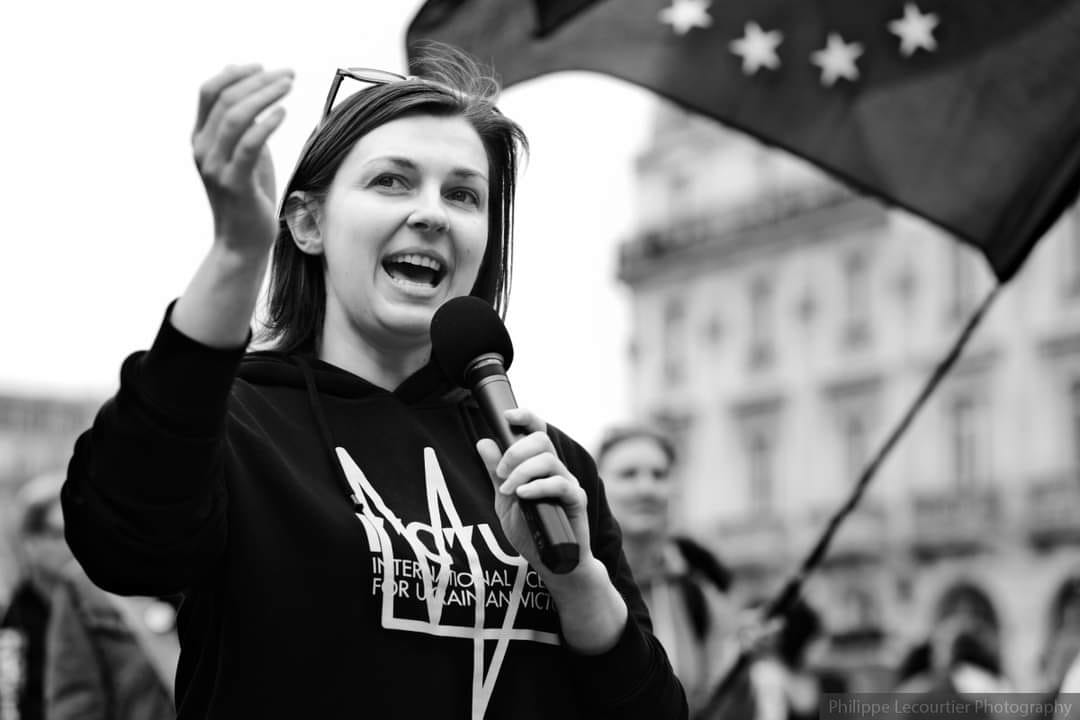
In the event of a joint or simultaneous confiscation by all the G7 countries, the risks to their currencies are considered minimal, as there is no real alternative to these currencies.
Therefore, if Russian assets are confiscated in the US, Europe, Japan, and the UK, would Saudi Arabia and the UAE immediately transfer their reserves to Russia and China? This is a bluff, of course. Read our analysis and find out why.
Belgium advocates against confiscation of Russian assets
Contrary to Christine Lagarde’s assertion that confiscation “would violate the international order that they are trying to preserve and force Russia to respect,” prominent professors of international law have repeatedly stated that confiscation as a countermeasure would not constitute a violation.
In over a decade of war and two years of genocide, Russia has shown no signs of returning to any show of respect for international law, brutally destroying Ukraine before the world’s eyes. Russia’s actions include killing children in their sleep, torturing soldiers in captivity, destroying energy infrastructure, and committing countless other war crimes.
The time has come for bold actions, and the recent decision by the US Congress paves the way for such measures.
Belgium’s stance is likely due to the fact that more than $191 billion of Russian assets are frozen in their Euroclear depository.
The European Union is currently finalizing a decision that will allow for the transfer of proceeds from frozen Russian assets to Ukraine starting in 2024. At the same time, Euroclear has retained €3.8 billion of revenue for risk insurance for 2022-2023.
Over the same period, Belgium has provided only €500 million in aid to Ukraine, while its ports have operated as the main gateway to Europe for Russian liquefied natural gas (LNG), helping the Russian war machine to stay afloat and generate revenue from the sale of fossil fuels financing the ongoing genocide in Ukraine.
Concurrently, Belgian Prime Minister Alexander De Croo announced an investigation into Russia’s interference in the upcoming European elections scheduled for June. He also noted that Belgian intelligence has confirmed the existence of a network attempting to undermine support for Ukraine, as well as instances where Members of the European Parliament (MEPs) were approached and offered money in exchange for spreading Russian propaganda.
In light of these actions, there is hope that Belgium will stop blocking the confiscation of Russian assets, which would significantly strengthen Ukraine’s position.
Confiscation of Russian assets a matter of political will
Russia must be held accountable for all of its crimes, and the confiscation of Russian assets should be one of those measures. In addition to the arguments voiced above, other fears and concerns raised by partners are debunked in our analysis, namely: legal and economic risks and fear of retaliation from Russia.
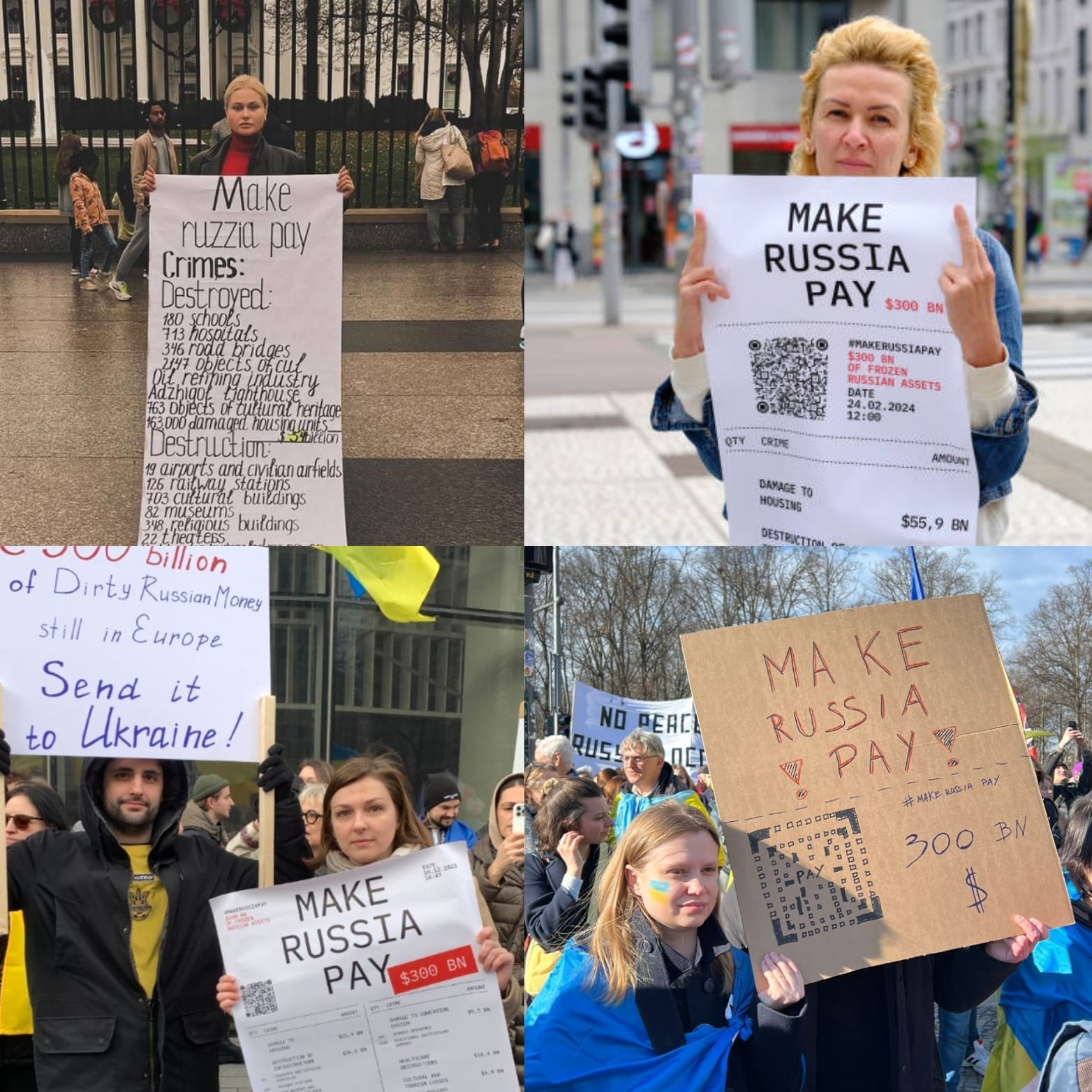
We also showcase arguments to allay the fears of third countries (there is no need for them to be afraid), and the prospects of challenging the confiscation in international courts (to be published soon).
With its landmark decision, the United States has provided Ukraine with another strong argument: confiscation is legal; it is a matter of political will.
This op-ed was originally published in Ukrainian on Ukrainska Pravda and has been translated with permission. Translator: Christine Chraibi
Related:
- The $ 300 billion question: Why the West does not confiscate Russian frozen assets despite Ukraine war
- US Treasury Secretary: Frozen Russian assets could aid Ukraine through various means
- Reuters: G7 officials discuss options to expedite financial aid for Ukraine amid future funding uncertainties
- Four reasons the West should finally seize Russia’s frozen assets for Ukraine

